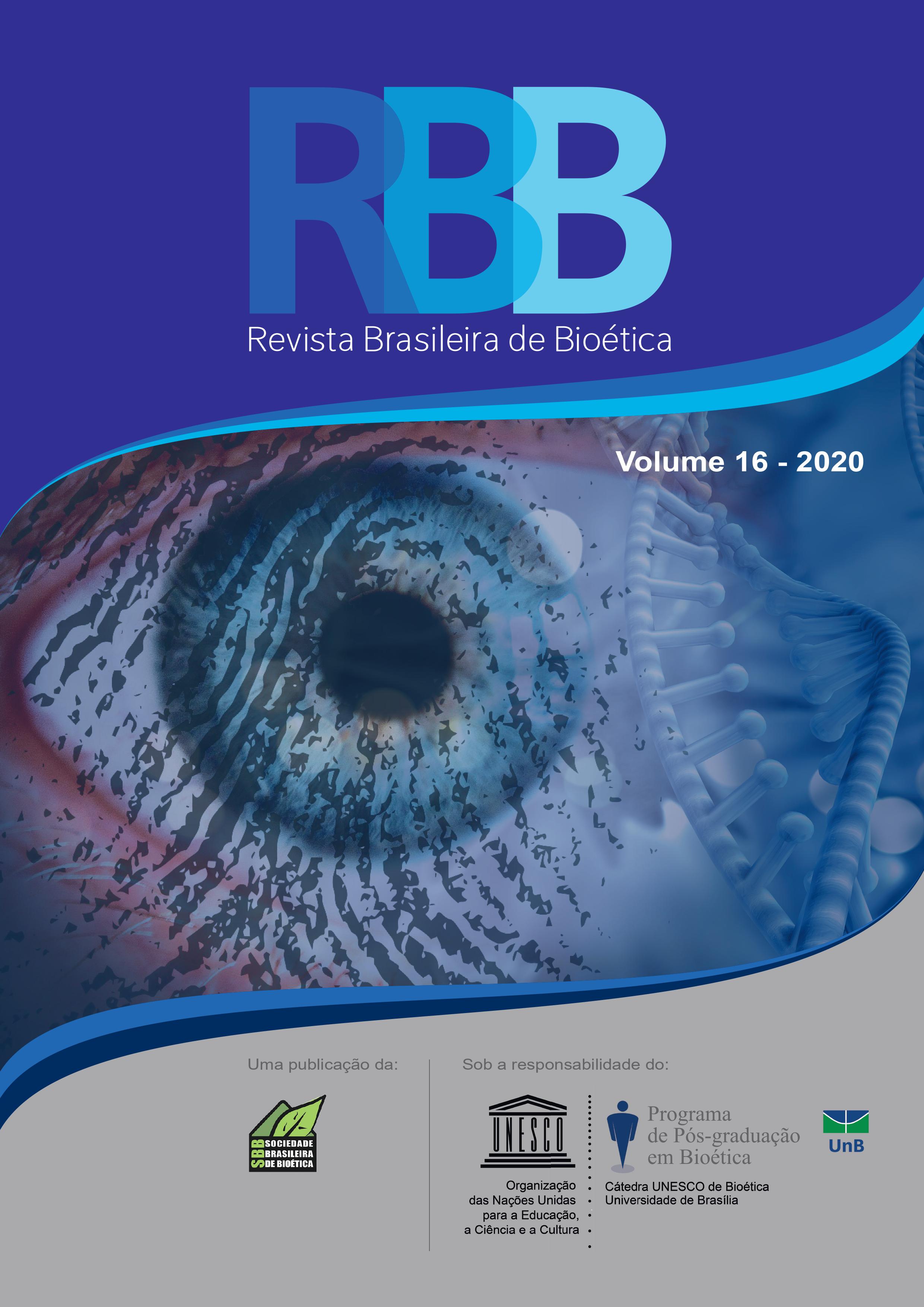Misfortune caused by death, personal identity and what matters in survival
DOI:
https://doi.org/10.26512/rbb.v16.2020.28300Palabras clave:
evil of death, personal identity, animalism, neo-Lockeanism, what matters in survivalResumen
This article presents and discusses concepts and arguments found in debates on three philosophical problems: the
misfortune inflicted by death on the person who dies; personal identity; and what is important in survival. First, it outlines the debate raised in the argument by Epicurus, to whom death means nothing to those who die. Second, the rivalry between neo-Lockeans and animalists regarding the most plausible criterion of personal identity is presented and discussed. Finally, a discussion on whether the misfortune caused by death is or not related to personal identity is conducted. The paper concludes that the dimension of the misfortune caused by death depends on both the amount of goods one is deprived of by death and on the interest such an individual would have to continue living. The aforementioned philosophical problems make up a core of acute issues such as decisions regarding the maintenance of life and delaying death.
Referencias
Agostinho S. Confissões. Coleção Os Pensadores. São Paulo: Editora Abril, 1973.
Baker LR. Why constitution is not identity. The Journal of Philosophy 1997; 94(12): 599-621.
Blatti S. Animalism, dicephalus, and borderline cases. Philosophical Psychology. 2007; 20(5): 595-608.
Borges JL. Obras completas. 1923-1972. Buenos Aires, Emecé Editores, 1974.
Bourget D, Chalmers DJ. What do philosophers believe? Philosophical Studies 2014.170(3): 465-500.
Bradley, B. The worst time to die. Ethics, 2008; 118(2): 291-314.
Bradley B. Well-Being and death, New York, NY: Oxford University Press, 2009.
Crick F, Koch C. Consciousness and neuroscience. Cerebral Cortex, 1998; 8(2): 97-107.
DeGrazia D. 2005. Human identity and bioethics. New York, NY: Cambridge University Press.
DeGrazia D. The harm of death: Time-Relative Interests, and abortion. The Philosophical Forum, 2007; 38(1): 57-80.
Epicurus. "Letter to Menoeceus." In Epicurus: The Extant Remains, trans. Cyril Bailey. Oxfords: Clarendon Press, 1926.
Garrett B. Personal identity and self-consciousness. New York, NY: Routledge, 1998.
Lewis DK. Survival and identity, Philosophical Papers, v.1, New York, NY: Oxford University Press, 1983. pp. 55-72.
Koch C. Safely switching consciousness off and on again what can we learn about consciousness from anesthetized patients? Scientific American Mind, 2012.
Locke J. An Essay concerning Human Understanding. Oxford: Oxford University Press, 1975.
Martin R, Barresi J. Naturalization of the soul: Self and personal identity in the eighteenth century. London: Routledge, 2000.
McMahan J. Cloning, killing, and identity. Journal of Medical Ethics, 1999; 25(2): 77-86.
McMahan J. The ethics of killing: killing at the margins of life. New York, NY: Oxford University Press, 2002.
Nagel T. Death. Noûs, 1970; 4(1): 73-80.
Noonan HW. Animalism versus lockeanism: Reply to Mackie. Philosophical Quarterly, 2001; 51(202): 83-90.
Noonan HW. Personal identity. 2 ed. New York, NY: Routledge, 2003.
Olson ET. The human animal - Personal Identity Without Psychology. New York, NY: Oxford University Press New York, 1997.
Olson ET. Animalism and the corpse problem. Australasian Journal of Philosophy, 2004; 82(2): 265-74.
Parfit D. Persons and reasons. Oxford: Oxford University Press, 1984.
Parfit D. The unimportance of identity. In Identity, ed. H. Harris, 13-45. Oxford: Oxford University Press, 1995.
Persson I. Our identity and the separability of persons and organisms. Dialogue, 1999; 38(3): 519-534.
Reid T. Essays on the intellectual powers of Man, Edinburgh: Edinburgh University Press, 2002.
Silverstein HS. The evil of death. The Journal of Philosophy, 1980; 77(7): 401-424.
Shoemaker S. Brown-Brownson revisited. The Monist, 2004; 87(4): 573-593.
Shoemaker S. Persons and their pasts. American Philosophical Quarterly, 1970; 7(4): 269-285.
Shoemaker S. Personal identity: a materialist account. In: Metaphysics: The Big Questions, ed. Peter Van Inwagen; Dean W. Zimmerman, 296-310. New York: Wiley-Blackwell, 1998.
Shoemaker S. Self-knowledge and self-identity. Ithaca: Cornell University Press, 1963.
Slater MH. Introduction: Framing the problems of time and identity. In Time and Identity, ed. J. K. Campbell, M. O’Rourke, H.S. Silverstein, 1-24. Cambridge MA: The MIT Press, 2010.
Soll I. On the purported insignificance of death. In Death and Philosophy, ed. J. Malpas, 20-34. London and New York: Routledge, 1998.
Wiggins D. Locke, Butler and the stream of consciousness: and Men as a Natural Kind. Philosophy, 1976; 51(196): 131-158.
Williams B. The self and the future. The Philosophical Review, 1970; 79(2): 161-180.
Descargas
Publicado
Número
Sección
Licencia
Derechos de autor 2020 Revista Brasileira de Bioética

Esta obra está bajo una licencia internacional Creative Commons Atribución-NoComercial-CompartirIgual 4.0.



